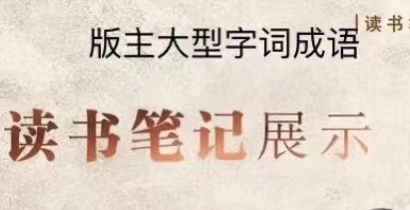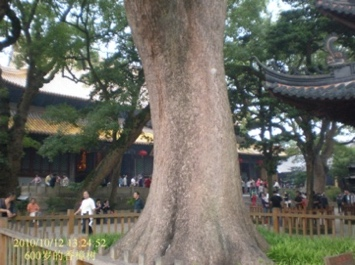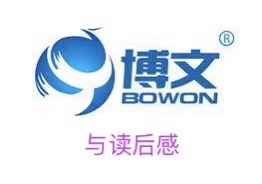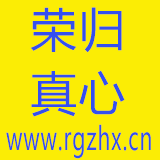Fancies, disgust, distress and happiness during my infancy and love, annoyance, desire and joyance before going to school can be summarized as follows:
First: Fear hot temper of men; like patience of women
When some of my neighbors were quarreling with and fighting against each other, I often went to see them. The hot temper of men frightened me a great deal. Once several men came to my neighbour’s home, pounding the glasses, throwing off the furniture and resulting in great disorder and confusion, who were my neighbour’s daughter-in-law’s brothers. I was too scared to keep on watching. I thought why a man must marry and suffered so much. Father’s temper was also scary. When he got angry at me, mother always protected me with words. My two uncles, mother’s brothers, were very friendly to me, but once in a while, they were drunken in the bar and became fearful. On the contrary, female family members and relatives were lovable and pleasing, such as mother, aunts and my elder sister who’s 4 years older than me. They helped and tended me, which caused me to have the view that women were much better than men. How I wished that I were a girl. So I didn’t like to wear boy’s clothes and was fond of the woman’s jacket with a large front. Accordingly, I liked to wear the long gown, which has large front. Such gowns soon disappeared and nobody wore them any more. You could see them only in movies or TV opera about the life during the Republic of China. Such a view was very infantile that the man was connected with hot temper and woman was usually patient. As my experience increased, I got to know that there were a lot of patient men and impatient women. Man could also become patient, which caused me to be prepared to overcome my impatience and become a patient man.
Second: Fear fighting and quarrelling; like living together in peace and harmony
The relationship between parents was normal, with father in charge of the outside business and mother inside affairs. However, unavoidably there were some disagreements and conflicts between them. Once they had anger against each other, at first cold war took place, which made me feel uncomfortable. The family atmosphere was coagulated, and before I knew quarrel broke out, the table might be thrown off, bowls and chopsticks falling down. Mother then lay in the bed for a very long time, and we children were afraid that we had nothing to eat. Father had to make something for us to solve our hunger, but he was not skilled and we didn’t dare to say anything. Such things didn’t happen often. Thanks to my parents, my family was living in harmony. I was especially happy when the family were celebrating mid-autumn festival and Chinese New Year Eve. The Chinese people lay great emphasis on the Chinese New Year Eve (spring festival) and leave everything delicious for the eve dinner. When the New Year was drawing near, parents restrained themselves to ensure the happy atmosphere of the family. They didn’t criticize or blame their children even though we made some mistakes, which made me feel parents were extremely lovable. Consequently I was always looking forward to the New Year and wished that we could celebrate the New Year every day and had good dinner every evening like that on the New Year’s Eve. It was not only because we had good to eat and new clothes to wear, but the most important was the happy, harmonious and relaxed atmosphere.
Third: admire the entrepreneurial spirit of father and the first uncle; dislike the honesty and incompetence of the third uncle
Before I began to receive the education in 1952 my small family had already 6 people. The small business being hard to deal with, father’s trade was always changing. I still remember that parents employed a person to produce incense for people to burn before the joss, investing a fairly large amount of money. What a pity it was that a lot of incense burners bought on credit. In an account book were written many names of debt persons and the amount they owed. When the spring festival (the Chinese New Year) was about to come, mother went to those debt persons’ home to collect the debt. It should be explained that in China it’s legal to collect debts before the spring festival, and all people admit it’s the appropriate and reasonable time. After the new year’s eve, i.e. at the beginning of the new year, you are not allowed to enter other people’s home to ask them to repay you debts. Debtors consider it too unlucky, and their neighbors will all denounce creditors instead. At least you’ll wait for one whole month to avoid being condemned when you want to ask somebody to repay your debt.
Mother’s feet were bound ones. Though they were longer than the minimum length of 3 Chinese cun, she had great difficulty walking. (When she was 13 years old, her mother became blind and she could liberate her feet without her mother’s supervision) Nevertheless she had to walk to homes of those who owed the incense money. At dusk she came home, utmost tired. In addition she was very angry because of shamelessness of some debtors.
The incense shop was inviable not only because the fund could not come back, but also the Communist Party began to “dispel the superstition”,smashing bodhisattva Josses in the temple, and almost nobody bought incense any more, enforcing father to seek a new trade. Our family raised a cow to help to do farm work. In the slack farming season he made use of the cow to process the wheat flour. Furthermore, he bought a manual machine to produce noodles to coordinated process production. Sieving the flour was a very hard job. The old big sieve was called in Chinese “Luochu” with two foot pedals, on which an adult stepped, making the large sieve move horizontally. Father got tired out to sieve the flour every day. My elder brother (Delin Song, pet name Shuanglin, 8 years older than me) and elder sister (Dexiu Song, pet name Jinxiu) could help him a little but after all they didn’t grow up. Afterward father saw a new-style of “luochu” and told us that it was smaller than the old style and stepped on it only with one foot more easily, with flour and branseparated. All of us felt very mysterious. Father decided to make the tool and asked a carpenter to inspect it together. They measured the tool and were determined to make one. Father buying lumber, bearing and other materials, the carpenter began to work with the presbyopic glasses. Both of them discussed and called back, extremely excited. After a long time, the new-style of “luochu” came into being. It proved true that the new “luochu” was marvelous and as a child I could also step on it to make it turn round. Not only could the bran flow out itself, the flour whitest in the head and darkest in the end of the cabinet. You could take out the whitest flour for special use and naturally you might also to mix it together. This kind of new-style of “luochu” decreased the labour intensity a great deal, making me admire father’s enterprising spirit. When I grew up I visited the flour processing factory, discovering the flour sieving machine there was as the same as the one used in my home. In the term of mechanics, the horizontal motion is transformed into the circular motion by means of leather belts or gears. The “luochu” in my home was revolved by manpower and in the factory it was powered by electricity.
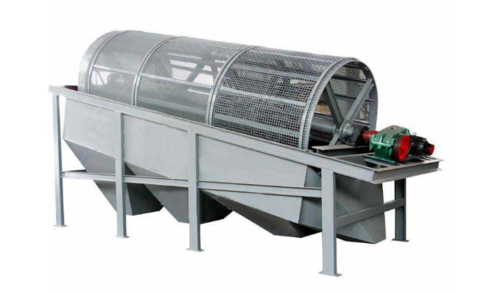
new-style of “luochu”,flour flying out through iron silk net
The big uncle was 2 years younger than father, but his family moved from the country to the town more than one year than mine. Big uncle’s enterprising spirit was bigger than father and he did more trades than father. He ran a shop, made bean curd, ginned cotton, bought and sold furniture and etc. Ginning cotton needed fairly large investment. Cotton gin was made of iron, which was rotated by a device pulled by a head of cattle. The device was called by Nantong people “Chepenglinzi” pulled by the cow or bull and could be used to fetch water from the small river, irrigating the field to grow rice. Big uncle used “Chepenglinzi” as power of the cotton gin toseparate the fibres of the cotton from the seeds, the first step to reel thread to weave cotton cloth. I have been to a lot of places and have never seen the “Chepenglinzi” anywhere. The people of Tongzhou should develop this item as a travelling developmental one, which I’m sure is to attract a lot of tourists to visit.
On the contrary, my third uncle was too upright and honest. He was tall, but his eyes had problems and eyesight was weak. People gave him a nickname “the third rotten eyes”. When dividing the home property, my granny and grandpa were partial to him and he got the best house and furniture, which could not make up his inability. He was not able to move to the town, and had been growing crops until 1960’s when the disaster led to his death of a kind of edema illness caused by hunger, only 39 years old. Father who did not fear the laborious painstaking effort lived to 91 years old. When I was typing this section of the book, big uncle who has been diligent all his life, and full of enterprising spirit, was already 92 years old, and could still work in the vegetable field. Sometimes he even rode the bicycle to other villages to watch the performance, entertaining himself. He lived until the end of 2009, 95 years old.
Fourth: admire good food and beautiful clothes; depressed because of no relatives in Shanghai
Earning not much, somewhat large population, we lived from hand to mouth. Although exchanges were more often than before, parents tried to manage the household with diligence and thrift, decreasing purchase as much as possible. The cloth of which our clothes were made was woven by mother herself. The weaver machine at that time in the country of Nantong was somewhat advanced. The shuttle carrying the thread going across the cloth between the threads was moved by a device pulled by hand, much more advanced than the weaver we saw in the southwest national minority area, on which the shuttle was moved directly by hand. The operator’s two feet stepped on the two plates of the weave and the two lays of longitude thread crossed each other. Each time the two lays of longitude thread crossed, the shuttle carrying the latitude thread moved quickly between the longitude thread from left to right or vise versa by pulling a rope of the device, whose speed was a lot faster than moving directly by hand. Because of the strong rhythm, the sound made by the weave was pleasant to hear. This kind of cloth woven by mother was very strong, and could be dyed different colors and designs. Flowery print cloth is Nantong’s special local product and has a good reputation. In addition, mother could directly weave cloth of some style with the different color of latitude and longitude thread. There were some difficulty changing the color of the latitude thread, with two shuttles carrying the thread of two different colors and mother could not pull the shuttle quickly. She had to stop after one shuttle carrying one color thread finished moving and changed another shuttle carrying the other color thread. The cloth woven in this way took on a pattern of blue and white checks. I liked to wear the shirt made of such checks of cloth. When I married Meilan Zhang in 1971, mother gave us some printed cloth made by herself for us to make a bed sheet, which my wife was fond of very much.
As time went on I was sick of always wearing the clothes of such cloth. In the shop we could see varieties of cloth bright with many colours. The neighbours whose father or relatives were working in the big city of Shanghai wore clothes obviously much more beautiful than ours and the model was also in fashion. I admired the trousers made of blue khaki, which could give some noise when you walked wearing them, showing off to others. My clothes were all made manually by father, Chinese-style jacket and trousers with wide waist, which looked ugly compared with the new-style student uniform made by a sewing machine. The neighbours working in Shanghai brought us children some candy and fruits, which I liked very much, esp. the fruit. When tasting an orange, I was very excited because of its delicious taste. Nantong is not far from Shanghai, so at that time many families had members or relatives who worked there. However, my family had no relatives there, let alone family members, otherwise we could also go to Big Shanghai by ship.
Fifth: suffer from small illnesses; always feel painful
In childhood I often suffered from illnesses. First there was always something wrong with the digesting system and I often suffered from stomach inflammation and enteritis, having diarrhea. Furthermore, roundworms stirred you and made you feel painful. Once elder sister had a belly hurt, head heavily sweaty. Father went to several temples to burn incense to seek divine help, which didn’t work at all. Father and elder brother borrowed a boat and carried her to the hospital in the county town, Jinsha. The result of diagnosis was that in her intestines there were so many roundworms that they had tied knots. Doctors washed her intestines with liquid medicines and drove all the roundworms to flow down. If it had not been for the doctors’ timely rescue, elder sister would have died. Another suffering was boils on the head, esp. in the summer, one after another. With such small disease we didn’t see the doctor, afraid of spending money. Mother captured me when the boil got rife and cruel-heartedly pressed it to force the pus to flow out, no matter how loud I cried. When the old boil had just been cured, new ones would soon appear, and the disaster days when I would suffer hardship were drawing nearer and nearer. It was lucky none of us six was fatally sick and all of us have grown up safely.
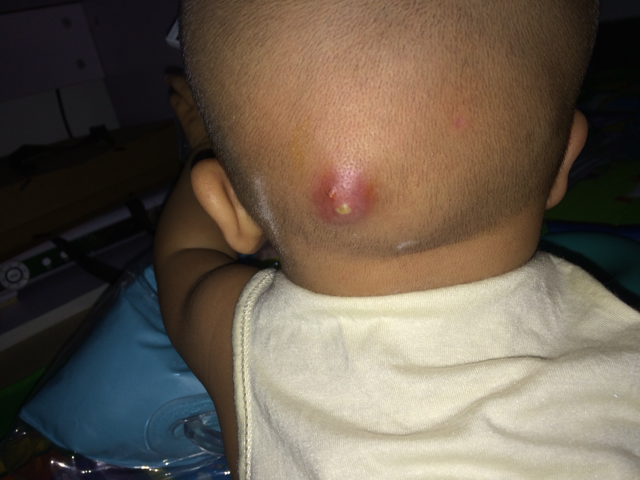
boils on the head
Sixth: Anxious to go to school; afraid of disciplinary ruler penalty
At the age of four I began to have interest in going to school. I often sat in the corridor of the classroom where elder sister was having class. I could hear what the teacher said and learned to read the text by heart, with no words really understood. When I was six years old, I cried and asked for going to school, but was not old enough. Aunt brought me to a school in the village close to my granny’s home, which had only one classroom where children of four grades sat together. I was wondering how the teacher taught them. After the interview the teacher agreed. But I saw a disciplinary ruler on the teacher’s desk and an adult showed me how the teacher would beat the palm of a pupil if he or she did not work hard, which scared me very much. I was told that the teachers in the Jinyu Primary School didn’t beat the pupils and the school was much larger. In addition I had to live with grandparents if I agreed to study in this village school. I backed down myself and was willing to wait another year to begin my initial education. The Jinyu Primary School was close to my own home and I could go home for lunch every weekday.
Finished on Oct. 9 2008 in Melbourne
Revised on Jan. 26 of 2012 in Chicago
Upload online on Aug 3 of 2023 in Xuzhou



